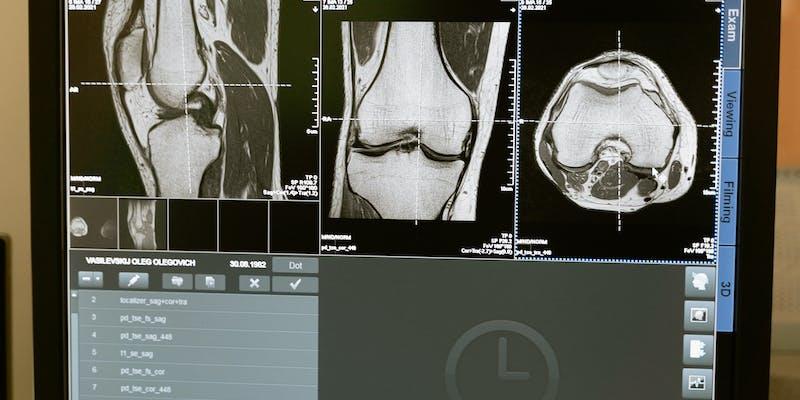Magnesium Deficiency Alert: Could You Be Missing This Crucial Mineral?
Feb 20, 2024 By Nancy Miller
The Earth, sea, plants, animals, and humans all contain magnesium, an essential mineral. Muscles, soft tissues, and fluids contain the remaining 60% of low magnesium symptoms in the body, found in the bones. Ensuring proper cellular function is contingent upon the presence of this mineral. It is essential to understand that magnesium's principal function is to support enzymes during a wide range of biochemical processes. This mineral actively impacts an extensive array of physiological processes. It facilitates protein synthesis, energy production, regulation of the nervous system, maintenance of genes, and muscle contraction. The administration of types of magnesium supplements is critical for all individuals.
What is Hypomagnesemia?
Hypomagnesemia occurs when blood magnesium levels drop beneath 1.8 mg/dL. Magnesium deficiencies are uncommon, even though many Americans can be at hazard because of bad diets. Develop a magnesium normal range deficiency with difficulty; symptoms are frequently mild until magnesium levels drop significantly. While daily magnesium consumption proportional to a nutritious diet is generally satisfactory, it does not always guarantee the prevention of magnesium deficiency. Certain health issues can increase magnesium deficiency. Gut diseases, including celiac disease, impair magnesium absorption and intestinal magnesium deficiency. Hereditary renal disorders, refeeding syndrome, hungry bone syndrome, and Type 2 diabetes increase hypomagnesemia risk.
Artery Hardening in Magnesium Deficit
Due to insufficient magnesium levels, arterial stiffness is a severe and early symptom. The risk of heart attacks, heart failure, and heart disease increases with this condition. According to the Framingham Health Study, magnesium reduces atherosclerosis. One study says types of magnesium reduce the risk of coronary heart disease. Despite this, half of heart attack patients receive magnesium chloride injections to prevent blood clotting and artery hardening.
Anxiety and Depression
Research suggests magnesium normal range may help millions of individuals with anxiety and depression. For brain function, this mineral is crucial. At the neuronal synapse, it controls glutamate, calcium, and other releases. Both chemicals are stimulating, but too much can be harmful. Magnesium blocks calcium and glutamate from overactivating the NMDA receptor. Unbalanced magnesium levels can cause brain neuronal injury and cell death. Turning this around is difficult. Many lack magnesium. Large parts of the population don't get enough magnesium. Research in the U.S. shows that half the population lacks magnesium. This low magnesium symptoms deficit may increase anxiety and depression because magnesium is essential to brain health.
Pregnancy Pain

Many studies and women's testimonials suggest magnesium may help pregnant women. An extensive study found that magnesium levels during pregnancy affected mood and health. According to reports, transdermal magnesium supplementation has been associated with a reduction in morning sickness symptoms in some women. A topical application of this magnesium formulation presents a benign and productive method for augmenting magnesium stores, thereby implying a potentially fruitful strategy for managing discomfort during pregnancy.
Additionally, the advantages of magnesium pertain to pregnancy-specific concerns. Pregnant women frequently experience muscle cramps and hypertension; its potential to alleviate these symptoms has been documented. Furthermore, an increased intake of magnesium has been associated with a decreased incidence of headaches and prevention of preterm labor, thereby offering a comprehensive strategy for enhancing maternal health. The potential for these benefits to revolutionize the pregnancy experience for numerous women is supported by scientific research, not merely anecdotal evidence.
High Blood Pressure
A substantial correlation was established between the different types of magnesium consumption and blood pressure in a study executed by Harvard and involving more than 70,000 participants. The study's results suggested that subjects who consumed the most magnesium maintained the lowest blood pressure levels in the long term. Elevated magnesium consumption was correlated with a progressive reduction in blood pressure, as confirmed by a meta-analysis that analyzed several studies. The considerable body of research and data supporting the notion that magnesium affects blood pressure is not merely an observation but a thoroughly documented phenomenon.
Additionally, research from the University of Minnesota illuminates the significant impact of magnesium, specifically in women. Women who consumed sufficient or elevated amounts of magnesium had a 70% lower likelihood of developing hypertension, according to the study's most notable finding. This figure alters how diet affects health, particularly blood pressure management.
Hormonal Balance
Hormone changes affect women most physically and emotionally during menstruation. Electroestrogen and progesterone levels are inversely related to magnesium levels, so high levels lower magnesium levels. This imbalance worsened during pregnancy, causes leg cramps. An abundance of research supports the correlation between magnesium and hormonal equilibrium. As illustrated by research, magnesium supplementation has been shown to alleviate symptoms associated with PMS substantially.
Energy Levels
Recall the concepts of ATP and adenosine triphosphate that you studied in biology. Our cells obtain the majority of their energy from it. Magnesium is essential for ATP to function in its entirety. Our cells deplete their power in the absence of magnesium. Fatigue diminished motivation, and other comparable symptoms may ensue from this deficiency in cellular energy.
Consider some numerical figures to put this into perspective. In Europe and the United States, approximately fifty percent of the population consumes magnesium normal range insufficiently, according to a study published in 2018. The population's observed widespread fatigue and low magnesium symptoms and energy levels may be exacerbated by this deficiency. Moreover, a potential benefit of augmenting different types of magnesium consumption is enhancing energy levels.
Bone Health

Magnesium is equally, if not more, vital to bone health than calcium, which is frequently lionized. Insufficiency of magnesium can impact bones in various ways. A crucial process for calcium uptake is the absorption of vitamin D. Vitamin D in excess will not guarantee adequate calcium absorption without sufficient magnesium.
As an additional point, magnesium is crucial for calcium's proper utilization. It transports calcium from tissues and muscles to bones by stimulating the hormone calcitonin. Magnesium reduces the risk of developing heart attacks, osteoporosis, kidney stones, and arthritis through this mechanism. According to statistics, an appropriate magnesium intake may significantly contribute to the reduction of osteoporosis in approximately 200 million women worldwide.
Sleep-Related Function
According to Dr. Mark Hyman, magnesium, the "ultimate relaxation mineral," is essential for good sleep. Helping relax the body and mind improves sleep. For calming sleep, magnesium is crucial for the mind's GABA receptors. Up to 40% of American adults battle with insomnia every year. Research suggests magnesium supplements can also assist insomniacs' sleep. Magnesium dietary supplements advance sleep and wake humans up later after a quality amount of sleep.







